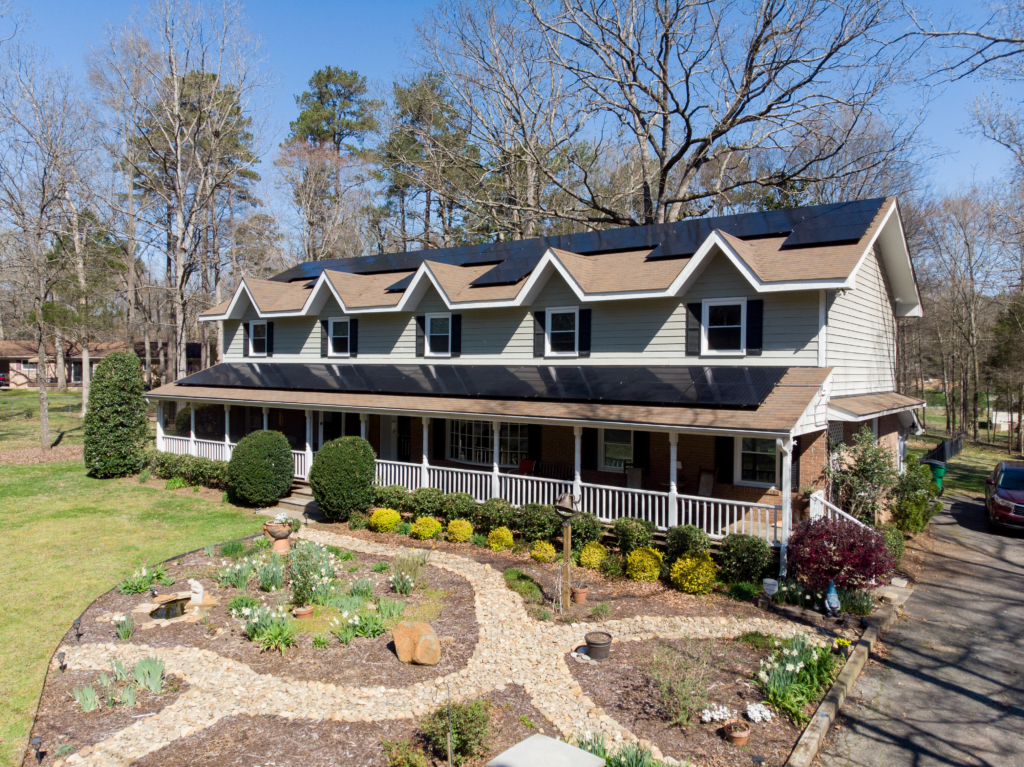James’ Solar Success Story
 James’ Solar Success Story
James’ Solar Success Story
James’ solar success story is just one of our favorites! When asked about his home’s solar energy, Jim beams and spills about his outstanding experience with solar: “[I have solar at] my home in Lake Norman, where I’ve lived for 12 years. I’ve been a solar person for about 5 years now. I’m enjoying it a lot.”
In terms of the dollars and sense of solar, he’s got a definitive argument for the prospective customer: “If I said to you, you can buy a bond today for X amount of dollars, that will pay you 4% this year… 5% next year, and 6 percent the next year, and 7 percent the year after that – I can sell you those bonds all day long. You have an investment, it’s virtually maintenance-free, and it keeps upping the yield as time goes by, because let’s face it, electric is getting more expensive as time goes on, it’s not going to get cheaper.” With that reasoning, he’s proud of his solar and a strong advocate for others to benefit from the technology as he has.
Interested in Becoming our Next Solar Success Story?
Learn more about solar electric systems that use solar panels to provide energy for your whole home.

Frequently Asked Questions About Solar for Your Home:
How exactly does going solar and a solar system itself work?
How many solar panels do I need for my home?
Roof-size/available space: When we look at the size of your roof and the space available, we gather data that tell us the maximum number of solar panels your home or site can hold and we even consider shading. We use a software “Suneye” which takes a 360 picture of your roof and we use this photo to determine if your home is a good candidate for solar.
Energy Usage: When we determine energy usage we look at your past electrical bills from over the course of a year to make sure your system isn’t too big or too small.
Your Budget: We take your budget seriously and most importantly, we want you to be satisfied with our services. We take your feedback on how much you want to spend so that we can size your system appropriately.
What is solar net-metering?
Does Duke Energy offer net-metering?
Curious about the cost of a home solar system?
Ready to Own Your Own Energy?
Speak to Us Today!
